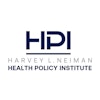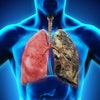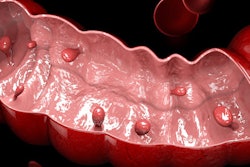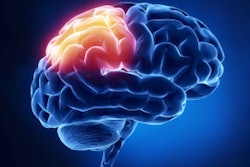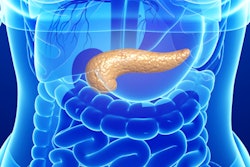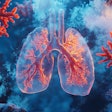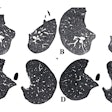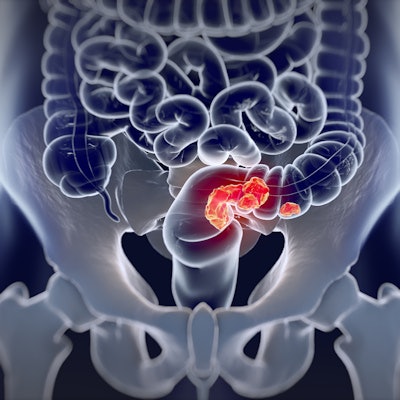
A one-day training course can yield significant and sustained performance improvement for radiologists who are interpreting CT colonography (CTC) exams, according to research published online February 15 in Radiology.
In a large prospective multicenter trial performed in the U.K., a group of radiologists who attended a one-day, individualized workshop on CTC reporting had a marked increase in sensitivity for detecting clinically relevant colorectal neoplasia than a control group of radiologists who did not receive the training.
What's more, these sensitivity improvements were still evident at six and 12 months after the training, and they were "independent of career experience, lesion location, or morphological characteristics," wrote a research team led by Dr. Anu Obaro of University College London.
Most jurisdictions don't require testing, accreditation, or performance monitoring for reporting of CTC exams, despite its status as the first-choice radiologic test for colorectal cancer screening and examination of symptomatic patients, according to the researchers.
"This contrasts with processes for colonoscopy and other cancer screening programs," they wrote.
In an attempt to address this deficiency, the researchers performed a prospective, multicenter cluster-randomized trial including 69 hospitals and 139 radiologists from England and Wales. All radiologists in the study were experienced in CTC interpretations and reported these exams routinely. Of the participants, 80 were randomized into an intervention group that received the one-day CTC training course with personalized feedback. The remaining 59 radiologists did not receive any additional training.
The researchers sought to assess whether the training could improve the radiologists' diagnostic sensitivity for clinically significant lesions (≥ 6 mm or higher) and if so, to determine the durability of these improvements. They evaluated the participating radiologists' performance in interpreting 10 CTC scans at time points of one, six, and 12 months later.
| Impact of 1-day CTC training course on radiologist performance | ||
| Radiologists with no extra training | Radiologists who attended 1-day CTC training with individualized feedback | |
| Baseline | 43.4% | 49.4% |
| 1 month | 42.4% | 66.4% |
| 6 months | 50.5% | 66.4% |
| 12 months | 44.4% | 63.7% |
| Detection of flat lesions | 28.5% | 55% |
With the exception of the baseline performance, all differences were statistically significant. In other findings, the researchers did not observe an association between the positive effect of training with prior CTC career experience.
The researchers noted that training and ongoing assessment should be mandated for practitioners interpreting CTC exams, and certainly within national screening programs.
"Such accreditation is already stipulated for breast cancer screening and would align CTC with colonoscopy screening," the authors wrote. "Our data suggest that radiologists would welcome this, and previous surveys have found that radiologists favor accreditation and assessment."



